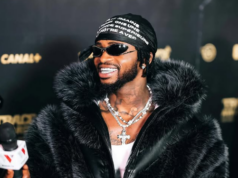South Korea’s parliament has voted to impeach President Yoon Suk Yeol over his short-lived attempt to impose martial law earlier this month. On Saturday, the country’s National Assembly voted by 204 to 85 to impeach Yoon and suspend his powers and duties, the Associated Press reported.
The motion required the support of two-thirds of lawmakers to pass. Yoon had survived a first impeachment vote last Saturday after most of his ruling People Power Party (PPP) boycotted it.
Yoon issued a martial law decree on December 3, which caused political turmoil across the country. It lasted only six hours as the country’s parliament voted to block the decree. South Korea’s Constitutional Court has 180 days to decide whether to dismiss Yoon as president or restore his powers. If he is forced out, an election to choose his successor must be held within 60 days.
Yoon’s refusal to resign and his insistence that he was right to declare martial law convinced some lawmakers from his own party to cross the aisle and meet the two-thirds majority, or 200 votes, required to oust him, The Washington Post reported. Yoon justified the martial law declaration as a move to thwart “anti-state” activities by the opposition parities controlling the National Assembly.
He sent hundreds of troops and police officers to the parliament in a bid to block its vote on the decree. He said on Thursday that his decision was an act of governance, and accused the main liberal opposition Democratic Party of being a “monster” that had tried to impeach officials and undermine the government’s budget bill
Korean democracy has survived a close call, and other democracies with a presidential form of government should take heed of the lessons from this episode,” said Tom Pepinsky, government and public policy professor at Cornell University. “President Yoon’s attempt to declare martial law reveals the fragility of the rule of law in divided societies, especially those with presidential governments in which the chief executive cannot be easily dismissed by the legislature,” he told Newsweek.
Pepinsky said it was fortunate that the martial law declaration was decisively opposed by the country’s National Assembly, as well as the media, civil society, and the rank-and-file members of the military who opted not to use violence against protesters and lawmakers.
Most importantly, no members of President Yoon’s own party were willing to defend his actions in public, nor did any vote in defense of his martial law declaration,” he added. Prime Minister Han Duck-soo will serve as interim president as South Korea enters a period of uncertainty.




